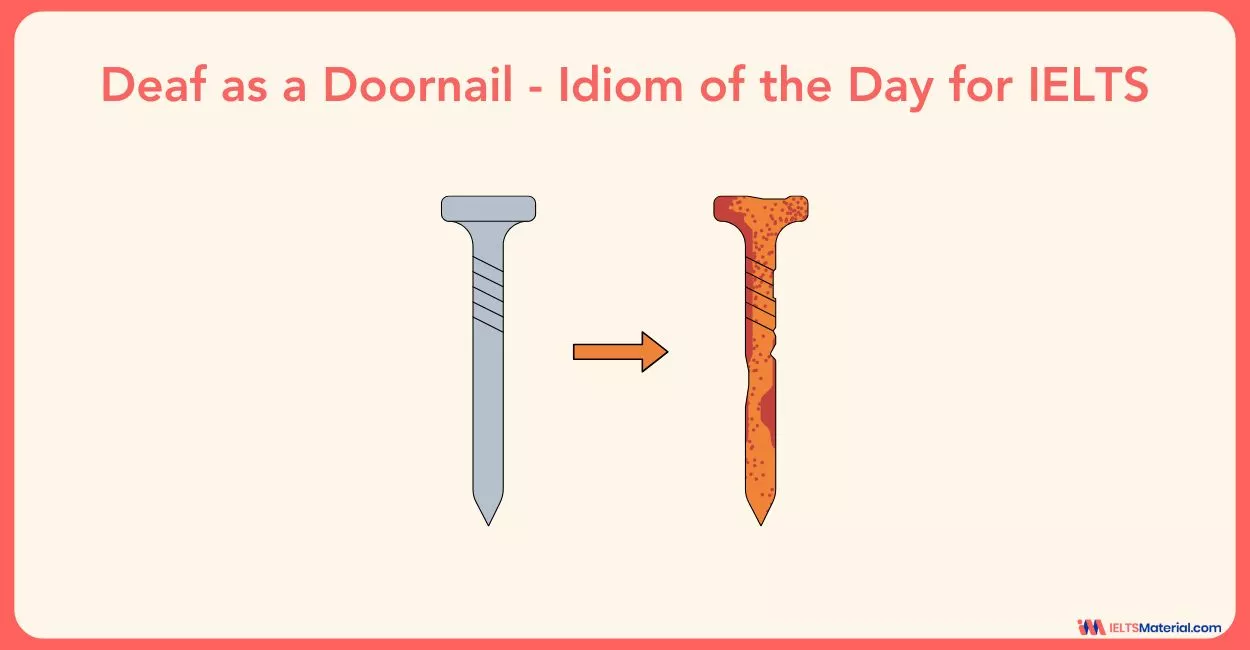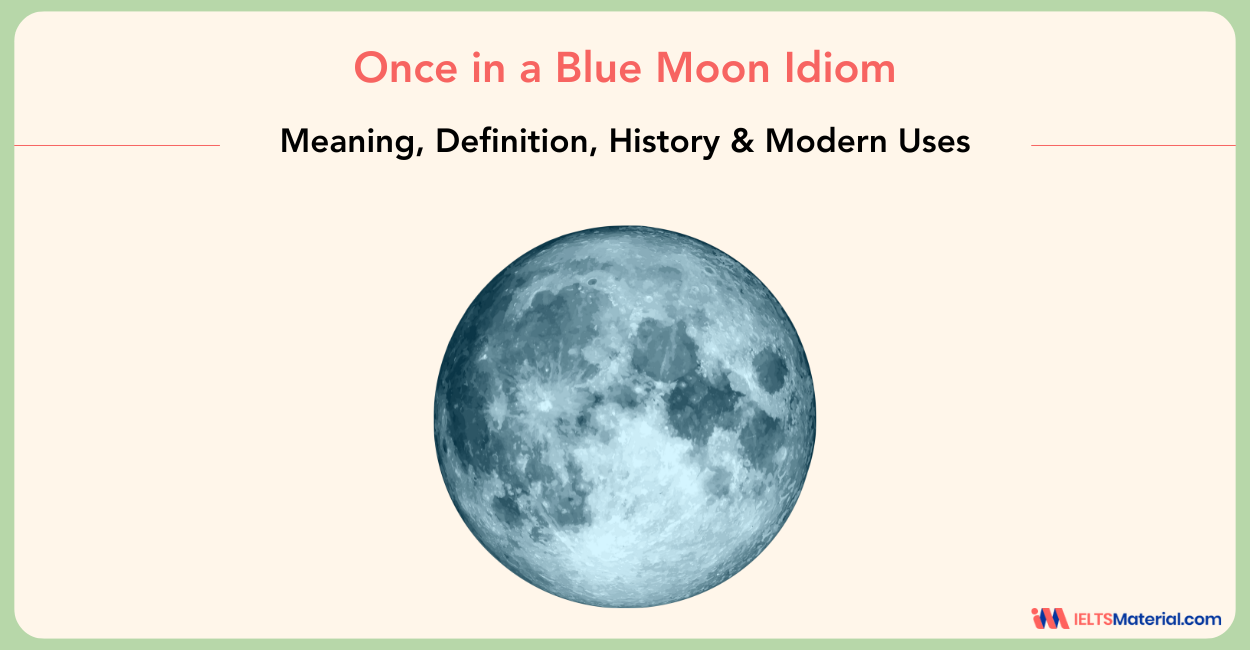Bone of Contention – Idiom of the Day for IELTS Speaking
4 min read
Updated On
-
Copy link
Learn the idiom Bone of Contention for IELTS Speaking with clear meaning, real-life examples, and practice exercises. Strengthen your vocabulary, improve fluency, and use idioms naturally to achieve a higher IELTS band score.
Table of Contents

Limited-Time Offer : Access a FREE 10-Day IELTS Study Plan!
Improving your vocabulary with idioms is one of the most effective ways to boost your IELTS Speaking score. Idioms add fluency, naturalness, and depth to your answers. One such powerful expression is “Bone of Contention”, which refers to the main point of disagreement or conflict between two or more people. This blog will explain the meaning, origin, and usage of the idiom, provide IELTS-style examples, and give you practice exercises so you can confidently use it in your IELTS Speaking test.
Meaning of Bone of Contention
Definition:
A “bone of contention” refers to a subject or issue that causes argument, conflict, or disagreement between people. It can be used in both formal and informal contexts to describe disputes in families, workplaces, or society at large.
Simple Explanation:
Imagine two dogs fighting over the same bone. That bone becomes the cause of conflict. Similarly, in real life, issues like money, politics, or lifestyle choices can become a “bone of contention” between people.Origin of the Idiom Bone of Contention
The phrase originates from a metaphorical image of dogs fighting over a single bone. Each dog wants to claim ownership, which naturally leads to a quarrel. Over time, this imagery evolved into the idiom “bone of contention,” which now symbolizes anything that sparks disagreement or debate.
By using this idiom in IELTS Speaking, you demonstrate not only advanced vocabulary but also the ability to use figurative language naturally.
Want to master more high-band IELTS vocabulary for the IELTS exam? Book a Free Demo Class today.
Usage of Bone of Contention in IELTS Speaking
Here are some IELTS-style examples showing how to use this idiom in your answers:
- “Nowadays, the rise in white-collar crime has become a bone of contention among politicians.”
- “Music preferences are always a bone of contention between John and his son.”
- “The method of reducing traffic congestion remains a bone of contention in many cities.”
Pro Tip: This idiom works best in situations where you are describing conflicts, arguments, or debates. It can fit naturally into IELTS Speaking Part 2 (personal experiences) or Part 3 (abstract discussions about society).
When to Use the Idiom Bone of Contention
You can use this idiom in IELTS Speaking Part 1, Part 2, or IELTS Speaking Part 3 when:
- Talking about family disagreements: property disputes, lifestyle choices, or generational differences.
- Describing workplace conflicts: salary, teamwork, or leadership styles.
- Explaining debates in society: politics, education reforms, environmental issues, or cultural differences.
- Discussing personal experiences: arguments with friends, siblings, or colleagues.
Using this idiom naturally in your answers shows examiners that you can handle higher-level vocabulary and express nuanced ideas.
Idiom Scenarios
Scenario 1
Sam: Why are your classmates divided into groups?
Asha: The seating arrangement has become a real bone of contention in our class.
Scenario 2
Mia: Why do you and your brother argue so often?
Arjun: Honestly, video games are a constant bone of contention between us.
Sample Answer Using the Idiom Bone of Contention
IELTS Speaking Part 2 – Describe a disagreement you had with someone.
Sample Answer:
“During my college years, group projects often became a bone of contention among my classmates. For example, when we were assigned a research project, some members preferred dividing tasks equally, while others insisted on working together on every section. This disagreement created tension and slowed down our progress. Personally, I believed that splitting the workload was more efficient. Although it was frustrating at times, I realized that conflicts are common in teamwork and can be resolved through proper communication. Eventually, we managed to compromise by dividing the work but reviewing each other’s parts. Looking back, this experience taught me that disagreements, though uncomfortable, can lead to better solutions if handled wisely.”
Why this works:
The idiom bone of contention is used naturally to describe a real-life situation. It adds depth, avoids repetition, and makes the answer sound fluent and authentic.
Want to master more high-band IELTS vocabulary for the IELTS exam? Enroll for an IELTS Online Classes today.
IELTS Vocabulary Tip for Bone of Contention
Idioms like bone of contention elevate your vocabulary score because they:
- Show your ability to use figurative language.
- Make your speech more descriptive and engaging.
- Help you express complex situations concisely.
Remember: Use idioms naturally and sparingly. Overusing them or forcing them into answers can sound unnatural.
Exercise: Practice with Bone of Contention
Q1: Parental property has become a bone of contention between the siblings.
a) a firm view
b) unifying factor
c) something that causes a quarrel
d) none of these
Q2: My father and I usually quarrel about the clothes I wear as ________.
a) out of the blue
b) a bone of contention
c) the gift of the gab
d) get the picture
Q3 (IELTS-style): “Many people believe that online privacy is a major ______ in modern society.”
Correct Answer: a bone of contention.
The idiom bone of contention is a versatile expression that can help you describe disagreements, conflicts, or debates in IELTS Speaking. By mastering its meaning, origin, and usage, you can make your answers sound more fluent and natural. Practice using it in sample answers, and soon it will become a natural part of your vocabulary. Mastering idioms like bone of contention not only enriches your vocabulary but also helps you score higher in IELTS Speaking.
Grab the newly launched Vocabulary for IELTS (Essential words for popular topics in IELTS) to level up your preparation.
If you’re aiming for a higher band score, make sure to practice idioms in context and check out the IELTS Exam Preparation Tips for Band Score of 8+ to further enhance your vocabulary and overall test performance.
Also Check:
- 21+ Tips On How to Improve Your IELTS Writing Band Score
- IELTS Exam Preparation Tips for Band Score of 8+
- IELTS Writing Task 1 Connectors
- 10 Useful IELTS Speaking Tips to Impress the Examiner
- Useful Idioms for IELTS Speaking to Score Band 8.0+
Explore IELTS Resources

Start Preparing for IELTS: Get Your 10-Day Study Plan Today!
Recent Articles

Kasturika Samanta

Prity Mallick

Nehasri Ravishenbagam





Post your Comments